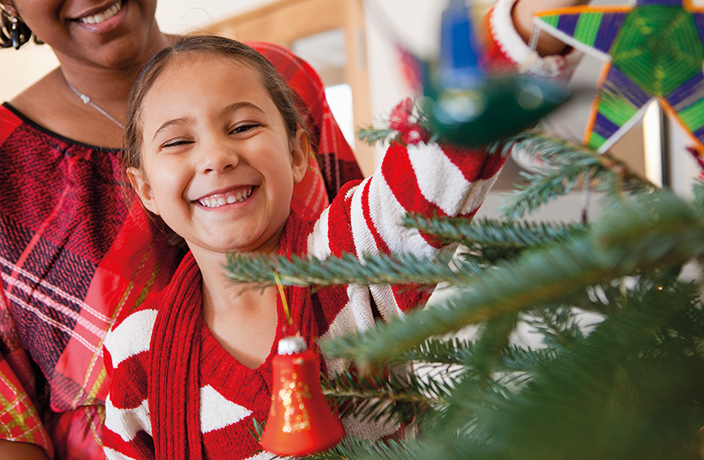As the holiday season approaches, we take time to recognize the importance of honoring the unique aspects of this multicultural community.
One of the more enjoyable parts of being a mental health practitioner in a major international city like Shanghai is to have the opportunity to learn about a patient’s cultural background, practices and traditions that may be similar or different from my own. Such exchanges in therapy not only allow for me to better understand the uniqueness of each of the patients and families that I work with, but it also gives the patients themselves the opportunity to rediscover and reconnect with parts of their identity that might have been lost somewhere in their transition to a life in Shanghai.
The holiday season is the best time to be reminded of the culturally specific rituals and traditions we honor and which help to shape our understanding of our identity and sense of self. This is of particular importance for the children and adolescents that make up our community, as they are at a time in their lives where they are constantly searching for ways to better understand and solidify their place in the world.
What the research tells us
Research has reflected time and again that there are numerous benefits of regularly practicing culturally specific rituals and routines for both the individual and collective psyche of a family. Specific to children and adolescents, research informs us that kids who have a good understanding of their cultural heritage and regularly engage in culturally specific rituals are likely to grow up to become more resilient, higher functioning adults.
A 2000 study by Syracuse University researchers Samia Markson and Barbara Fiese reflected how children who were reared in families that placed a great deal of importance on cultural practices not only reported lower levels of anxiety, but these meaningful family rituals also were suggested to be a protective component of the child’s overall physical health and general wellbeing. The researchers noted that a child who has a good grasp of the routines and rituals specific to their family is likely better equipped to take on life’s inevitable challenges and unexpected events.
Tips for maintaining holiday rituals while living abroad
1) Reach out to your local consulate to find holiday activities specific to your cultural background.
With 200,000 expats living in the Shanghai community alone, chances are you will be able to connect with other individuals or families who practice cultural rituals and routines that are similar to your own. Call or visit your home country’s consulate office to find out about holiday events that are occurring in and around the city.
“A child who has a good grasp of the routines and rituals specific to their family is likely better equipped to take on life’s inevitable challenges and unexpected events”
2) Share your holiday rituals and routines with families whose cultural identity is different from your own.
One of the best ways to connect with your own cultural heritage is to educate others from differing cultural backgrounds about the holiday rituals and routines your family practices. This may include activities such as hosting a potluck with other families and encouraging attendees to bring a special holiday dish unique to their home country, or perhaps attending a praise and worship service with a family that holds religious ideas and beliefs that are different from your own.
3) Reflect on special memories from holidays past.
Reminiscing about positive experiences from one’s past can help improve one’s psychological and emotional wellbeing (numerous therapeutic modalities use the act of reminiscing as a key treatment component). Take time out this holiday season to gather around the kitchen table with your family and encourage each other to share your most cherished memories from past holidays.
Dr. Balfanz is the Senior Clinical Psychologist at American Medical Center, a comprehensive medical and mental health service clinic for children, adolescents, adults, and families living in Shanghai. For more information on clinic services, contact Dr. Balfanz at: nate.balfanz@amc-shanghai.cn or visit his website at: www.drnatebalfanz.com


















